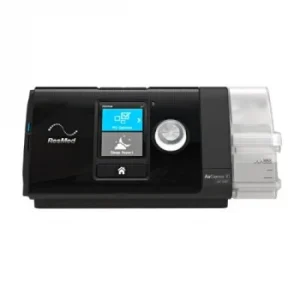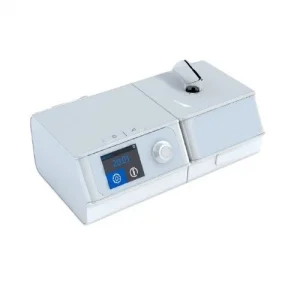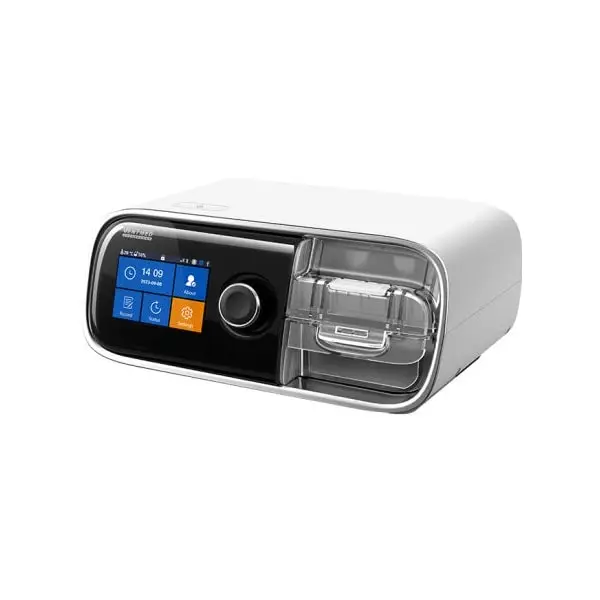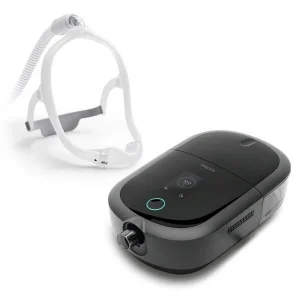-
-
Resmed Airsense 10 Auto CPAP
ReMed AirSense 10 Auto CPAP Machine, Made in Australia.
It is one of the world’s most Popular CPAP machines for sleep apnea. The AirSense 10 AutoSet is a premium auto-adjusting pressure device with new HumidAir™ heated humidifier and ClimateLineAir™ heated tube and advanced event detection.৳ 145,000.00 -
Auto CPAP machine
Auto CPAP Machine for Sleep Apnea
Model: LC-APAP, Brand: Topson, Made in China.
Continuous positive airway pressure (CPAP) therapy is a common treatment for obstructive sleep apnea. Topson is a Chinese company specialized in the design, manufacturing and sales of medical devices for diagnosis and treatment of sleep disordered breathing. For patients who could not tolerate CPAP, many were then given an Auto-titrating CPAP, more commonly called Auto Positive Airway Pressure (APAP).৳ 40,000.00 -
-
DreamStation 2 Auto CPAP
Philips DreamStation 2 Auto CPAP machine, Upgrade your CPAP machine to one designed with your comfort and ease in mind. If you’ve been successful with CPAP therapy for five years or more, upgrade to DreamStation 2 Auto CPAP Advanced today, Made in USA.৳ 160,000.00
Continuous Positive Airway Pressure (CPAP)
What is CPAP?
Continuous Positive Airway Pressure (CPAP) therapy is a highly effective treatment for obstructive sleep apnea (OSA). It works by delivering a steady stream of air through a mask, keeping the airways open throughout the night. As a result, individuals experience uninterrupted breathing and improved sleep quality.
How CPAP Works
CPAP machines use a motor to generate continuous airflow, which is delivered through a mask worn over the nose or mouth. Consequently, this prevents the airway from collapsing, ensuring a consistent oxygen supply while sleeping. Over time, regular use can lead to better overall health and increased energy levels.
Key Benefits of Sleep apnea Device
Using CPAP therapy consistently offers several advantages:
- Better Sleep Quality – Since Sleep apnea Device (CPAP) reduces apnea episodes, users enjoy deeper and more restful sleep.
- Decreased Snoring – By keeping the airway open, CPAP significantly minimizes or eliminates snoring.
- Improved Oxygen Levels – With continuous airflow, oxygen deprivation is prevented, reducing daytime fatigue.
- Lower Health Risks – CPAP therapy helps lower the risk of serious health conditions such as high blood pressure, heart disease, and stroke.
- Increased Energy & Focus – Because of improved sleep, users often experience enhanced mental clarity and productivity.
Who Needs CPAP Therapy?
Sleep apnea Device (CPAP Therapy) is typically recommended for individuals diagnosed with moderate to severe sleep apnea. If you frequently experience any of the following symptoms, it may be time to consider CPAP:
- Loud and persistent snoring
- Pauses in breathing while sleeping
- Excessive daytime sleepiness or fatigue
- Difficulty focusing during the day
- Frequent morning headaches
How to Choose the Right CPAP Machine
When selecting a CPAP machine, it is important to consider the following factors:
- Pressure Settings – Some models offer adjustable or auto-adjusting pressure settings for enhanced comfort.
- Mask Type – Depending on your preference, you can choose from nasal masks, full-face masks, or nasal pillows.
- Built-in Humidifier – Many CPAP machines include humidifiers to help reduce dryness and irritation.
- Noise Level – Since quieter models enhance sleep quality, it’s best to opt for a low-noise machine.
Tips for CPAP Success
To make the most of your continuous positive airway pressure (CPAP) therapy, follow these useful tips:
- First and foremost, wear the mask every night for consistent results.
- Additionally, clean the mask and tubing regularly to prevent bacteria buildup.
- If the mask feels uncomfortable, adjust the fit to avoid leaks and irritation.
- Furthermore, using a humidifier can help prevent dryness in the airways.
- Lastly, be patient and give yourself time to adjust to the therapy.
Final Thoughts
In summary, CPAP therapy is a proven and non-invasive solution for managing sleep apnea. By using the right machine and staying consistent with treatment, you can significantly improve your sleep, health, and overall quality of life. If you suspect you have sleep apnea, it is best to consult a healthcare provider to discuss whether CPAP therapy is the right choice for you.

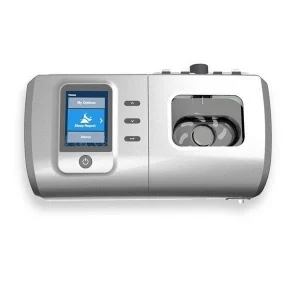 Auto CPAP machine
Auto CPAP machine 